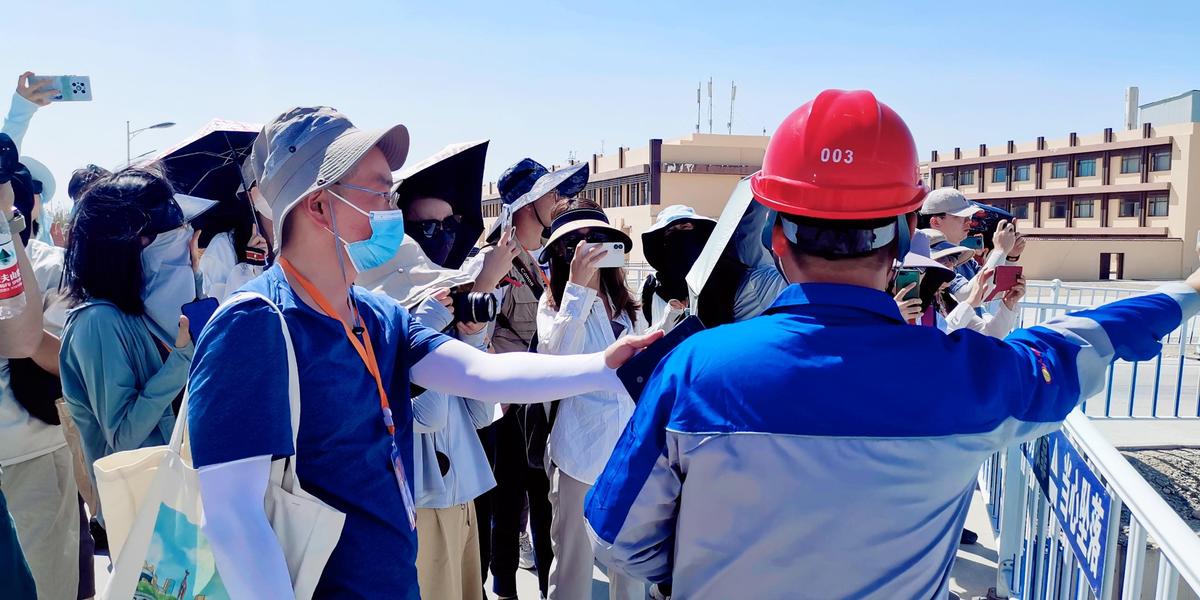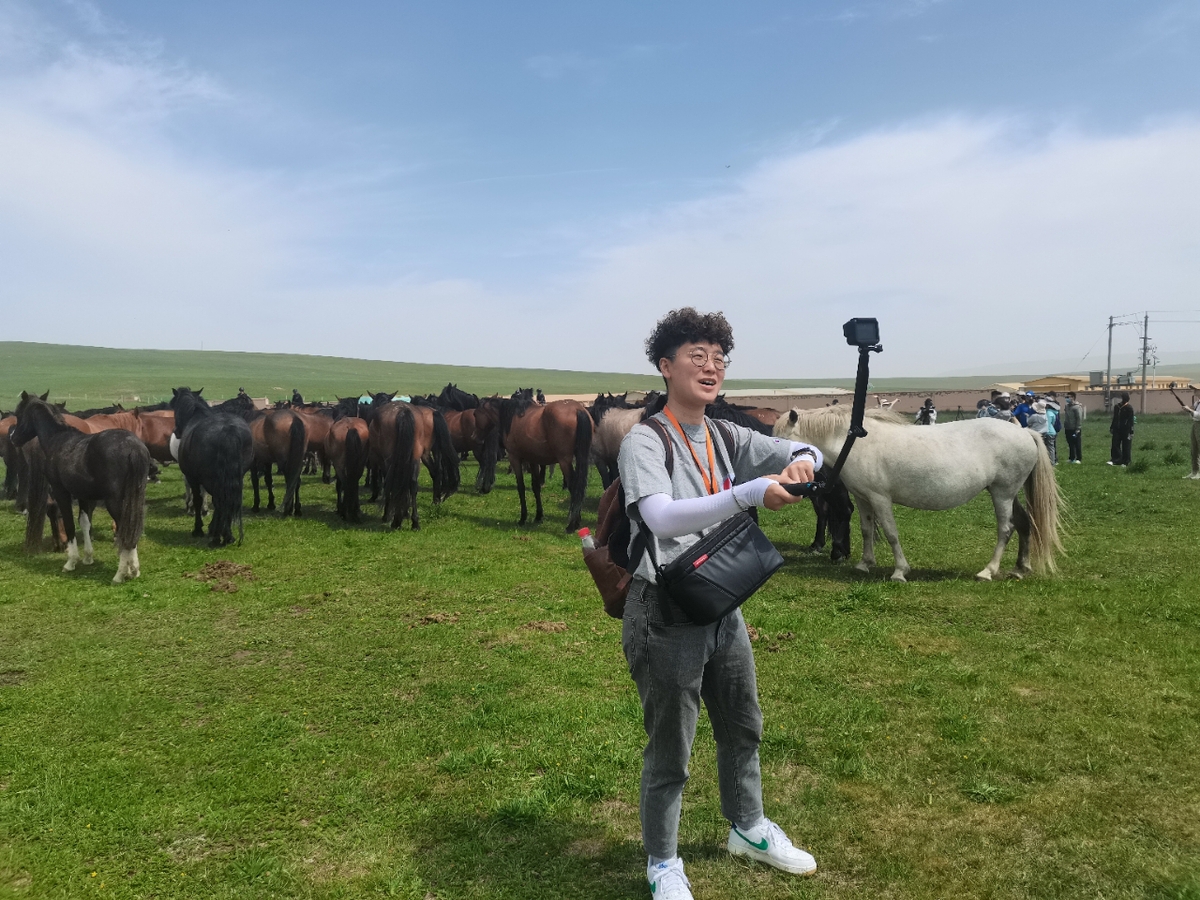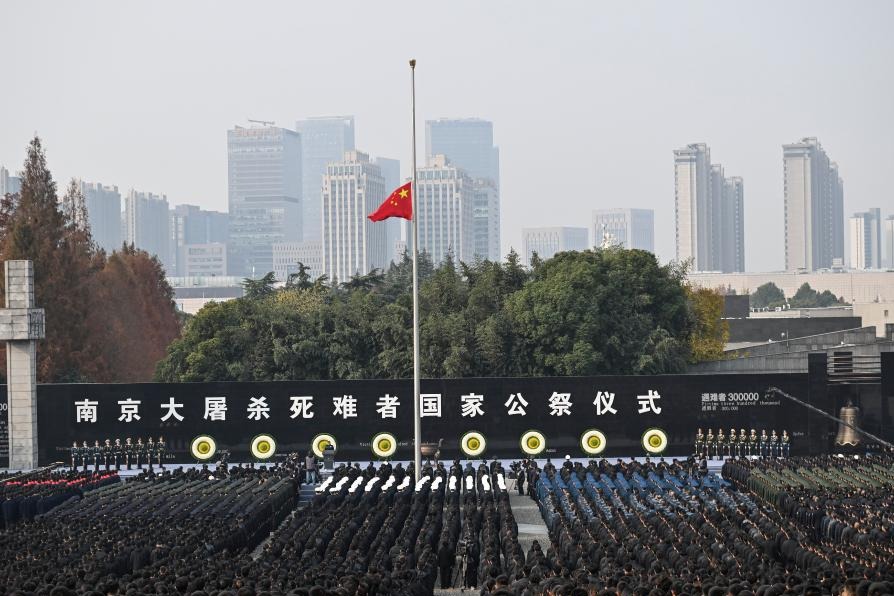Gansu media tour leaves Taiwan journalists in awe


Reporters from Taiwan who participated in a just-concluded media tour of Gansu province said they were impressed by both its ancient culture and socioeconomic development.
Some 40 reporters from 23 media outlets from the Chinese mainland, Taiwan and Hong Kong participated an annual tour organized by the Taiwan Affairs Office of the State Council and the All-China Journalists Association to report on the Gansu's latest developments and boost mutual understanding. Ten of the media outlets were from Taiwan.
During the eight-day activity, which ended on Sunday, the participants visited various sites ranging from natural landscapes such as the Danxia landform, to historical sites such as the Gansu Provincial Museum in Lanzhou and Mogao Grottoes in Dunhuang.
"Many things that I read in poetry in ancient China, I am now seeing them in person," said Tsai Su-chuan, from Taiwan Reports. "It feels amazing and profound."
Tsai said that when she was a student, she learned about the Hexi Corridor in her history and geography classes, and she could recall the names of the cities along the route in order.
"Being in the midst of these historical sites, it is easy to connect them with the knowledge I learned," she said, adding that she hopes that more people from Taiwan will come and see Gansu for themselves.
Lan Xiaowei, a journalist from Taiwan newspaper China Times, said that when he was a student, Chinese history and geography was featured more in his classes than they are today.
He said that due to the influence of the island's "desinicization" policy promoted by the Democratic Progressive Party authorities, Chinese history has been reduced to only a few chapters in school textbooks, leaving Taiwan youth with a meager understanding of it.
Lan said in Taiwan there are many roads named after Gansu's cities, including Dunhuang Road and Lanzhou Road, so people in Taiwan are familiar with these cites and are curious about Gansu.
"Historical books can be changed, but the names of roads in Taiwan help us remember the connection between the mainland and Taiwan," he said.
Historical knowledge of these places is what Taiwan people, especially young people lack. If they can visit the mainland through traveling, trading and learning, they will deepen their understanding of local culture, he added.
Lin Wei-kang, a young vlogger from Taiwan, said that he would share the beauty of Gansu with people across the Taiwan Strait in his videos.
Visiting the Yellow River for the first time and reciting a poem about it that he learned, he said: "It is the mother river of all Chinese people. It is a must-visit place when you come to the mainland."
He said he also enjoyed going to the desert and seeing camels, something he could not do in Taiwan.
Chen Binhua, the deputy head of the information bureau of the Taiwan Affairs Office who led the trip, said that it was a great opportunity to help journalists delve into the culture and traditions of a region on the Chinese mainland and learn about its vibrant socioeconomic development.
Amid the interviews and visits, there was an exchange event held between media workers on both sides of the Strait, which helped to improve overall journalism standards, Chen said.
He said that he participated in the exchange twice in the past as a journalist for Xinhua News Agency before he joined the Taiwan Affairs Office, and he had made good friends with journalists from Taiwan.
"I hope that the journalists would deliver lively and vivid reports that allow Taiwan compatriots to see the real Gansu and the real mainland, contributing more positive energy to the peaceful development of cross-Strait relations," he said.


Contact the writers at
zhangyi1@chinadaily.com.cn





































